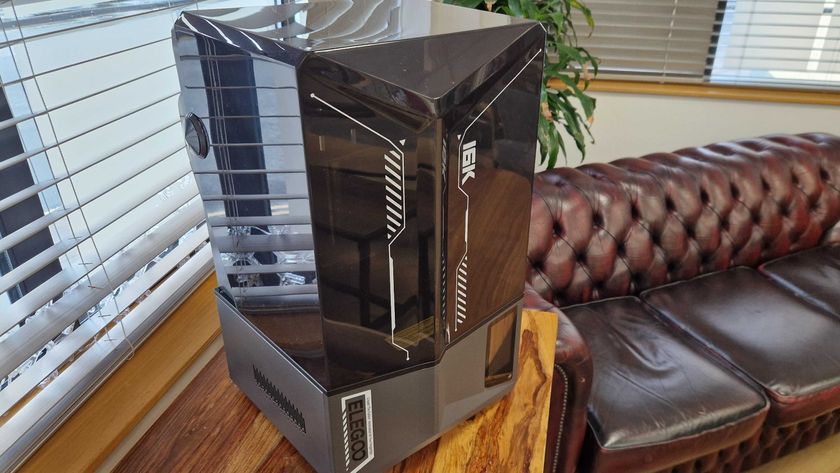The Last of Us 2 ending should have left more for the player to think about
Ellie's journey was meant to be thought provoking, but Naughty Dog provided too many answers
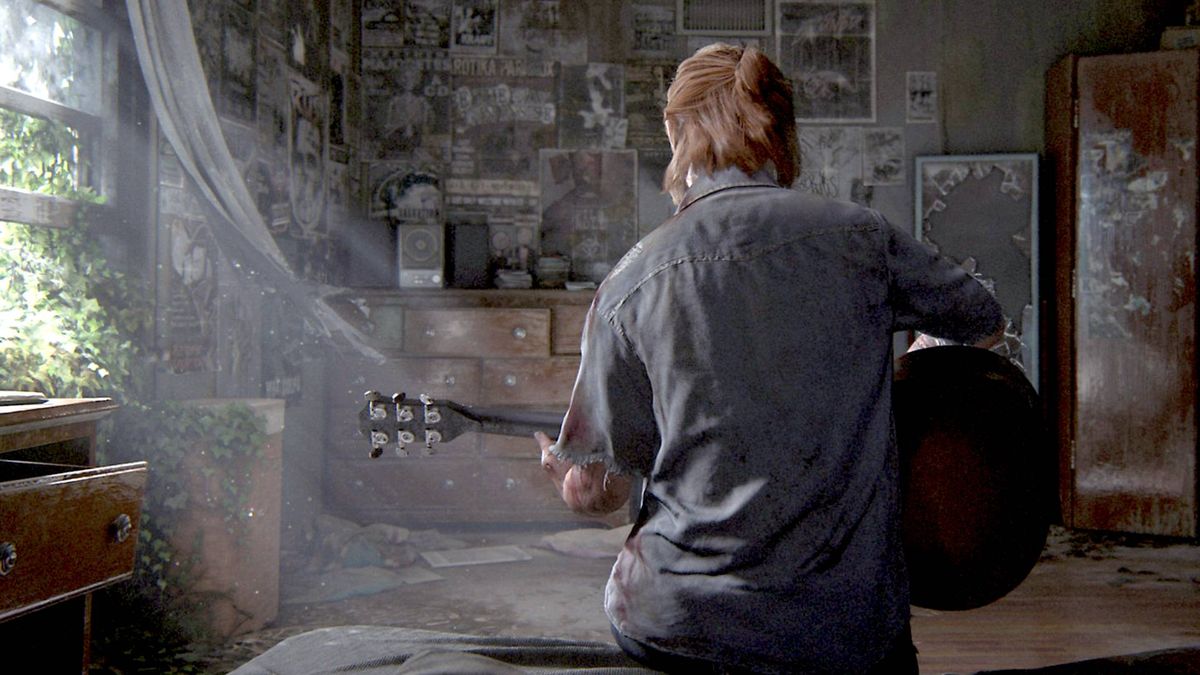
Two things upfront before I say anything else, Firstly, I think The Last of Us 2 is an amazing piece of work, so try not to barrel into the comments to complain about the headline without actually reading anything. And, secondly, spoilers obviously. I’m going to be talking about the ending and little else, so don’t go near the rest of this article if you haven’t seen the credits roll.
There was a point during the climatic moments of The Last of Us 2 where my hands were actually shaking. I was literally shook, watching what I thought was the end of the game unfold in front of me. Ellie was at home on the farm with Dina, following her defeat at the hands of Abby/me in the theater. She was broken, struggling with PTSD, and unable to resolve or answer any of the questions she had about everything that had happened. But she at least seemed to be trying.
She said no to Tommy’s unfair request to start another death wish pursuit of Joel’s killer and later, after a few notes on the guitar, she stopped to stare into the middle distance as the screen faded to black. At that point I was more or less beside myself trying to digest everything that had happened. There was so much to process. So much I need to unpack and think about.
And then the game carried on for another four hours.
By the time the actual credits finally appeared, all those questions had been slapped away by answers; capped off with a few hours of condensed epilogue that seemed to exist purely to clarify things and let the player ‘win’ as Ellie.
Victory lap
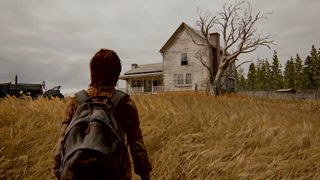
Mechanically, this trip to Santa Barbara is some of The Last of Us 2’s best gameplay. The Rattler’s camp is a brilliantly designed level, with the sun blasted, dusty location one of the most well realized in the game. From the sunburn on both Ellie and the Infected, to the dry rasp of bleached palm leaves in the breeze, it’s an immediately fascinating location that expands the world immeasurably. Narratively, though, it tramples over everything that happened up to that point like a five year old trying to get attention.
In the space of a few hours, the sequence strips away all of the ambiguity that made the ending on the Farm so devastating and interesting. There’s ultimately little uncertainty left as a result: Ellie totally gets her revenge and finishes the game in a victory state but lets Abby go following a forgiveness epiphany, avoiding forcing you to kill a character the game has spent so long trying to make you empathize with up to that point. Compared to the lack of compromise and plentiful questions of the first game’s ending, Part 2 closes on an oddly middle ground attempt to please everyone that leaves little to chew over.
Sign up to the 12DOVE Newsletter
Weekly digests, tales from the communities you love, and more

By this point, you’ve spent so much time with Abby that she’s basically proved herself to be the better person. The title screen you see at the end even continues Abby’s story, rather than Ellie’s, by making it clear that she and Lev reach Catalina. Yes, she killed Joel but he did kill her father and, technically, the human race’s future, so, you know... [waves hands]. And, by the end of the game, Ellie has murdered hundreds of people (including multiple members of Abby’s extended family) through her conscious choice to chase revenge.
The definitive feel of the final beach fight thus feels totally at odds with everything the game has tried to do at this point - fostering a growing sense of ill ease with Ellie’s self destructive obsession, and developing the realization that Abby is basically Ellie, or even Joel, in a different world. It draws such morally gray lines that you could pick it apart in search of answers forever, and never feel satisfied.
Lady Vengeance
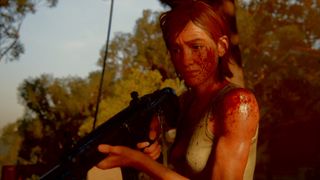
The beach fight strips all that away by reasserting the roles of Ellie as ‘hero’ and Abby as ‘villain’. Something that never feels quite right as you slice away at Abby’s painfully thin frame. If it’s meant to put you emotionally in Ellie’s shoes, it doesn’t work. At this point Ellie's inability to let go has transcended reason or logic. She only exists because of revenge.
There’s the quality of an addict to her that director Neil Druckmann hints at in this interview, with the ending compounding the idea - crystallizing it into something hard and permanent. I don’t necessarily mind this as a narrative arc. The Last of Us 2 is an ugly world full of ugly people, so Ellie being left an almost irredeemable shell by her life isn’t too surprising. It’s more that, after everything that’s happened, and the time you’ve spent in that story, Ellie dropping back in for a few hours of more killing, only to discover her ability to forgive in the last few minutes, feels rushed and forced.
Everyone that Ellie kills is a Joel to someone
Much of this need to provide answers does come partly from the problems of building the game around such a personal quest for revenge. Everyone that Ellie kills is a Joel to someone, and Abby exists as a playable character to serve that point as much as anything else. Ellie straight up murdering people for 30 odd hours to avenge a single death is just going to fall apart narratively, whereas Abby resembles a more morally acceptable protagonist as, opening aside, she’s largely fighting to survive. In fact, her story with Lev is much closer to Joel and Ellie’s journey in the original game, and unlike Ellie in Part 2, she’s not looking for trouble (past the initial quest to avenge the death of a beloved father figure whose name also starts with ‘J’), she’s just trying to survive and make peace with herself, and what she’s done. “I did it for me” she tells Yara and Lev when they ask why she helped them.
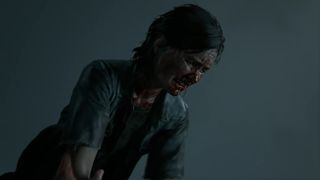
Having built half a game around trying to mitigate the impact of Ellie’s unrepentant and destructive revenge, it seems strange for Naughty Dog to double down on it in the last few hours of the game. Ending at the Farm would have avoided these problems without taking away the implications. Ellie is still arguably a bad person, but the questions posed become far more interesting when left to your own interpretation.
It’s a similar mistake the first game made with the character of David. When Ellie initially meets him, he seems benevolent and willing to help. Later, he starts to talk about how some of his people were "slaughtered by a crazy man with a little girl", suddenly inserting an uneasy ambiguity to every action you've made up till now. Maybe Joel and Ellie are the bad guys on the other side of the line? Some of the hunters you encounter are clearly monstrous, but were they all? It could have been the sort of moment that is debated and discussed for years. Except the game throws it all away by making David not just evil, but a murderous cannibal, as if it needed to underline the good and bad with a marker pen.
The need felt in The Last of Us 2, to go beyond the farm and end the game with Ellie in control, to define her and its resolution, is a similar mistake. Everything is far more interesting when Ellie stays at home with Dina, because it involves the player to process it all and consider the events. What does it mean to you? How does it feel to you? The epilogue we got feels a little like Naughty Dog didn’t trust the player to do that, and decided instead to clearly outline the blanks, if not fill them in entirely.

I'm GamesRadar's Managing Editor for guides, which means I run GamesRadar's guides and tips content. I also write reviews, previews and features, largely about horror, action adventure, FPS and open world games. I previously worked on Kotaku, and the Official PlayStation Magazine and website.
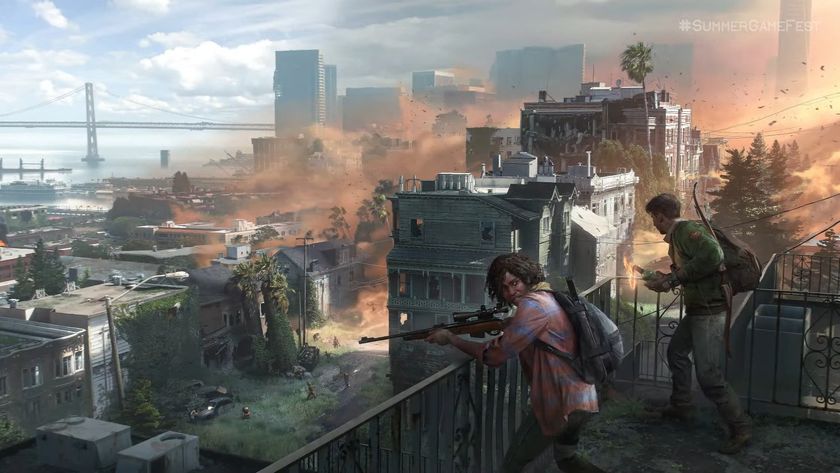
Cancelled The Last of Us Online game was "great," but former PlayStation exec says Naughty Dog had to scrap it after Bungie told them how much work it would be
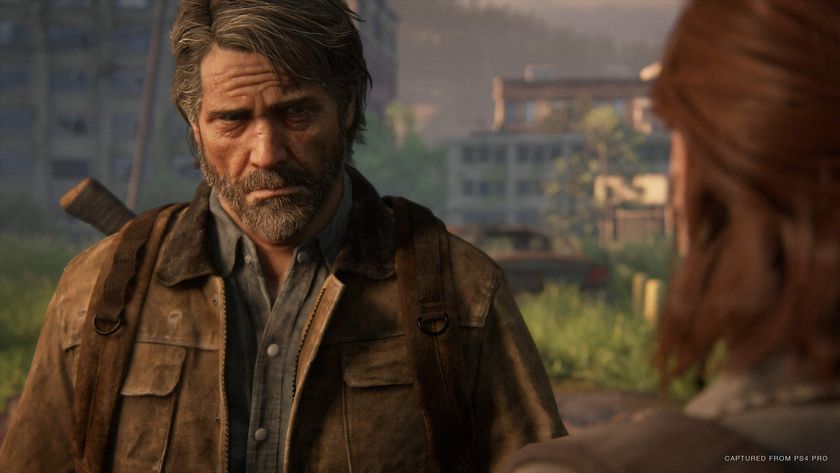
The Last of Us director Neil Druckmann doesn't have the "confidence" to plan for sequels: "I'm not saving some idea for the future"
Most Popular






